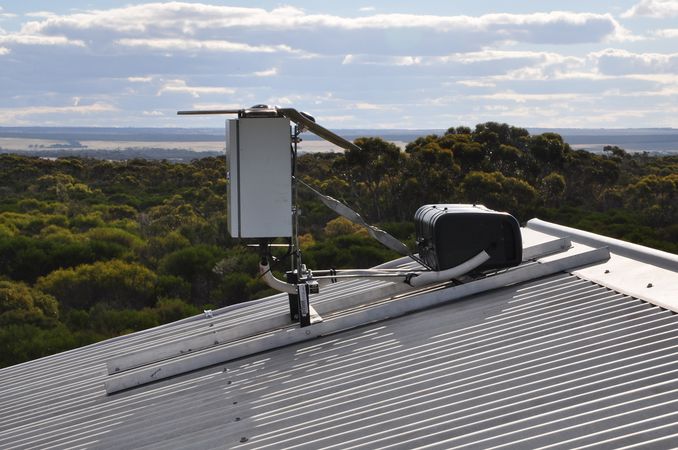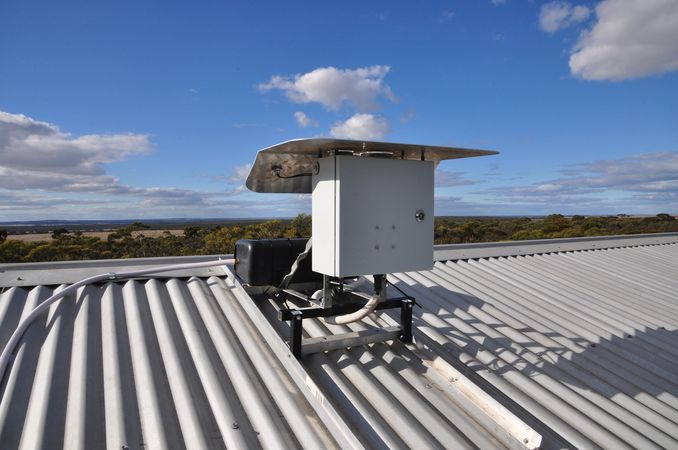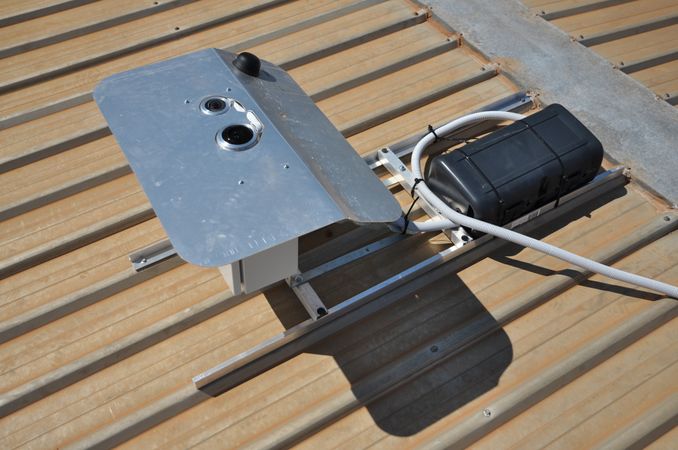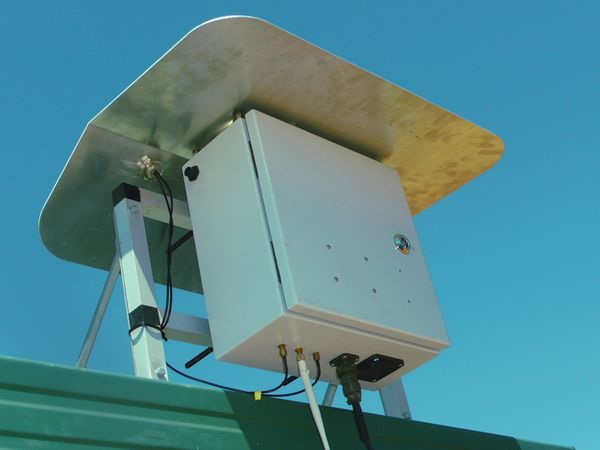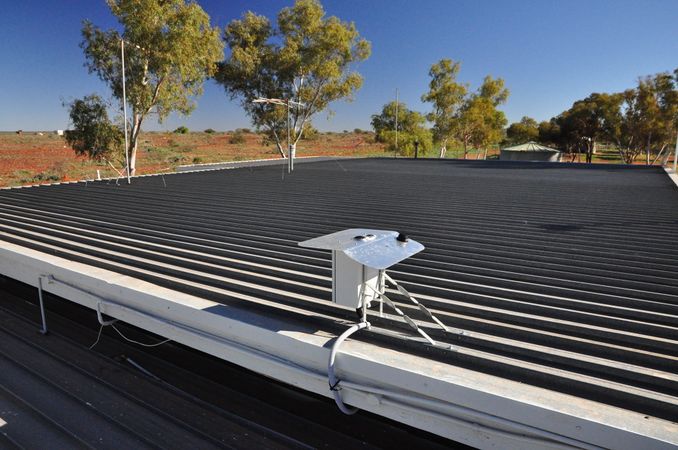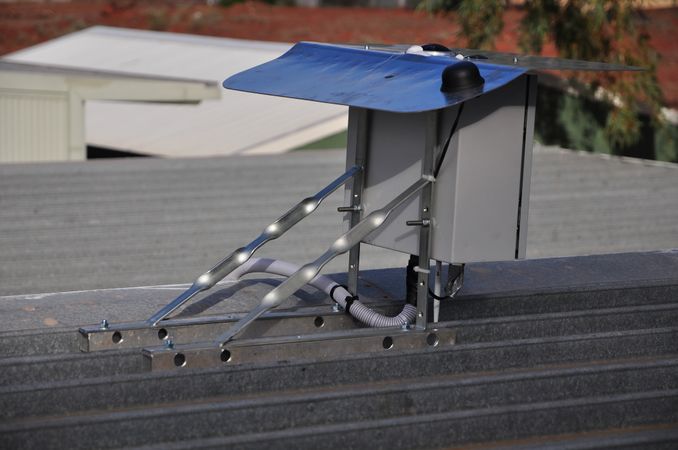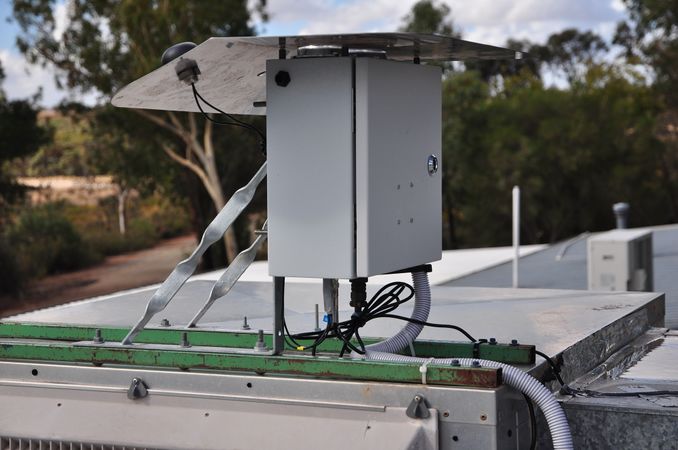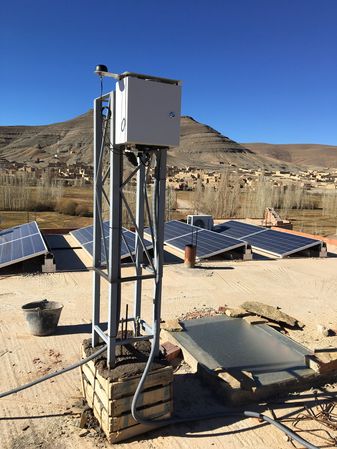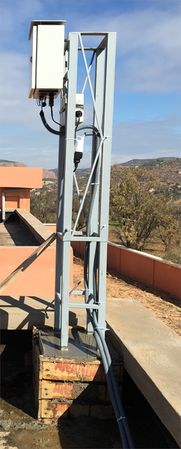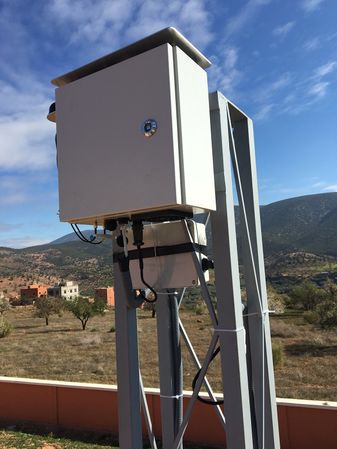Difference between revisions of "Rooftop Fireball Camera Installation"
Martin Cupak (talk | contribs) |
Martin Cupak (talk | contribs) m |
||
| Line 1: | Line 1: | ||
| + | |||
| + | == DFNSMALL and DFNEXT installations in Australia == | ||
DFN observatories need to be securely mounted as the images used for calibration can be captured a few hours or days (in the case of a full moon) apart from the actual fireball event. Standalone ground based installation using a stand provides the best stability, but is not always practical due to site constraints or an obscured horizon. Roof mounting can be a convenient alternative in some situations. The observatories must be pointed as close to the vertical as possible, so the incline of the roof will need to be taken into account. The observatories should be bolted into the rafters if possible, not just the roof surface, to minimise wind movements, and (possibly) movement due to thermal expansion of the roof surface. | DFN observatories need to be securely mounted as the images used for calibration can be captured a few hours or days (in the case of a full moon) apart from the actual fireball event. Standalone ground based installation using a stand provides the best stability, but is not always practical due to site constraints or an obscured horizon. Roof mounting can be a convenient alternative in some situations. The observatories must be pointed as close to the vertical as possible, so the incline of the roof will need to be taken into account. The observatories should be bolted into the rafters if possible, not just the roof surface, to minimise wind movements, and (possibly) movement due to thermal expansion of the roof surface. | ||
| Line 13: | Line 15: | ||
File:Rooftop camera.jpg| | File:Rooftop camera.jpg| | ||
</gallery> | </gallery> | ||
| + | |||
| + | == DFNEXT installations in Morocco == | ||
<gallery mode="packed" heights="300"> | <gallery mode="packed" heights="300"> | ||
| Line 19: | Line 23: | ||
File:IMG 5377 Ozoud DFNEXT 1600.jpg| | File:IMG 5377 Ozoud DFNEXT 1600.jpg| | ||
</gallery> | </gallery> | ||
| + | <center>Photos courtesy of Moroccan Observatory for Fireball Detections (MOFID)</center> | ||
= Mounting Pattern = | = Mounting Pattern = | ||
Revision as of 15:21, 23 January 2019
Contents
DFNSMALL and DFNEXT installations in Australia
DFN observatories need to be securely mounted as the images used for calibration can be captured a few hours or days (in the case of a full moon) apart from the actual fireball event. Standalone ground based installation using a stand provides the best stability, but is not always practical due to site constraints or an obscured horizon. Roof mounting can be a convenient alternative in some situations. The observatories must be pointed as close to the vertical as possible, so the incline of the roof will need to be taken into account. The observatories should be bolted into the rafters if possible, not just the roof surface, to minimise wind movements, and (possibly) movement due to thermal expansion of the roof surface.
Roof mounts can be built entirely from parts found from a hardware store. The DFN has successfully used shelving brackets, aluminium angle or square hollow section assembled with bolts and aluminium channel with modular connectors:
DFNEXT installations in Morocco
Mounting Pattern
The observatory has four M8 mounting bolts in a 185x185 mm square pattern.
File:DFNEXT and DFNSMALL mounting pattern (PDF format).pdf
Securing the Power Adapter
(to be completed) weatherproof box, conduit
Sheet Metal Roof Mount
depending on the results of some analysis of historical pointing stability data, we may design and upload CAD files for a bent sheet metal roof mount at some point in the future
